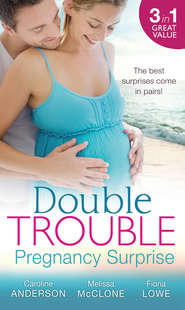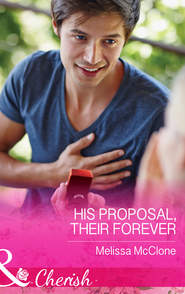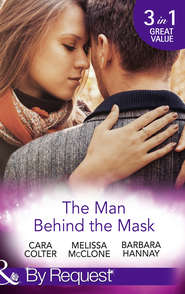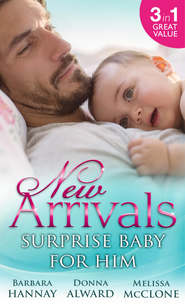По всем вопросам обращайтесь на: info@litportal.ru
(©) 2003-2025.
✖
Winning His Heart: The Millionaire's Homecoming / The Maverick Millionaire
Автор
Год написания книги
2019
Настройки чтения
Размер шрифта
Высота строк
Поля
Kayla was afraid to tell him, again, how sorry she was.
“There’s a live-in aide, but obviously she was distracted by something. I think she sneaks the odd cigarette out here on the deck. Maybe she left the door open behind her.”
Kayla shivered a little at his tone, very happy she was not in the aide’s shoes.
“How long has your mom been like that?” Kayla asked softly.
It looked like a conversation he didn’t want to have, but then he sighed, as if it was a surrender to confide in her.
“She’s been deteriorating for a couple of years,” he said softly. “It starts so small you can overlook it, or wish it away. I’d notice things when I visited: toothpaste in the refrigerator, mismatching socks, saying the same thing she just said. When I wasn’t here, she’d phone me. She lost the car. Where was Dad? That was when she could still remember my phone number.”
David stopped abruptly, took a deep breath, as if he was shaking off the need to confide. His voice cooled. “I’ve had live-in help for her for nearly two months. The last few weeks, the decline has seemed more rapid. I don’t think she’s going to be able to stay here any longer.”
So what could she say, if not “sorry”? But Kayla had dealt with her own grief, and sometimes she knew how words, intended to help, could just increase the feeling of being lonely and alone.
Instead of words she reached out and placed her palm over his heart. She wasn’t even sure why. Perhaps to let him know she could feel it breaking?
His skin felt beautiful under her fingertips, like silk that had been warmed in the sun. And his heartbeat was steady and strong. She didn’t know if the gesture comforted him, but it did her. She could feel his strength, and knew he had enough of it to cope with whatever came next.
For a moment he stood gazing down at her hand, transfixed. And then he covered it with his own.
Something more powerful than words passed between them, and she felt a shiver of something for David she had not felt ever before.
Certainly not with her own husband.
Shaken, and trying desperately not to show it, she withdrew her hand from under the warm, resilient promise of his.
For a moment, an electric silence ran between them. Then David ran his freed hand through the crisp darkness of his hair. “No dog, I assume?”
Kayla was inordinately relieved at the change of subject, at the words sliding like cooling raindrops into the place that sizzled like an electrical storm between them. “No. I hoped he might have found his way back to the yard.”
“I’m sorry I didn’t find him.”
“It’s not for lack of trying. Thank you for the posters—they brought out an army of children. I’ll reimburse you, of course.”
He shrugged. “Whatever.”
“And naturally, I’ll pay the reward when we find him.”
“It’s okay, Kayla. I offered it, I’ll pay it.”
“No.”
“It’s probably a moot point, anyway.”
“You think we aren’t going to find him?” she asked, trying to keep the panic from her voice. David obviously had bigger things to think about than her dog.
“Oh, I think you’ll find him. I just don’t think the kids will. He’s a timid little guy, isn’t he?”
“Yes. How did you know?”
“Well, I saw him scurry away after he fell out of the basket when you got stung.”
“Did he look hurt?”
“Not at the rate he was running, no. I had spotted you before that. Riding down Main Street. Even then the dog had a distinctly worried look on his face.”
Despite herself, she chuckled. “That’s him—my little worrier. I’ll probably never get him to ride in the basket again!”
“A pair well matched. You’re both worriers!”
To be standing with such a gorgeous man and pegged as a worrier! What did she want to be seen as? Carefree? Lively? Happy?
But David always saw straight to the heart of things, and the last few years of her life had been rife with worry. Kayla self-consciously touched her brow, wondering if there was a permanent mark of it there.
Thankfully, David was scanning the bushes. “I don’t think he’s going to come out for the reward-hungry children running through the streets shrieking his name. Sorry. A misstep on my part.”
“He’ll show up,” she said, but she could hear the wistfulness—and worry—in her own voice.
“I hope so.” She knew she should say good-night and leave his porch, cross the little strip of grass that separated their properties and close the gate firmly between them.
But she didn’t.
When had she become this lonely? She felt like she ached for his company. Anyone’s company, probably. She didn’t want to return to that empty house, the wayward direction of her restless thoughts.
He was looking at her, smiling slightly.
“What?”
“There is a quality about you that begs to be painted.”
“What?” She wanted to press her brow again!
“I noticed it when I saw you on the bike. I could almost see a painting of you—Girl on a Bicycle.
“And now, out here in your white nightdress on the porch. Girl on a Summer Night.” He shrugged, embarrassed.
But she felt as if she drank in the words like a flower deprived too long of water.
In that Lakeside Life feature on David and Blaze Enterprises, it had said, almost as an aside, that David had one of the largest private collections of art in the country. Again, the man who stood in front of her did not seem like the same boy who had raced her on bicycles down these tree-lined streets.
This David, this man of the world and collector of art, thought she was worthy of a painting? He saw something else in her besides a furrow-browed worrier?
Kayla could feel tears smarting her eyes, so she said swiftly, carelessly, turning her head from his gaze and pressing her fingers into her forehead to erase any remaining worry lines,“I guess the swelling has gone down, then.” She pretended she was concerned about the swelling from the beesting rather than the worry lines!
She felt his fingers on her chin, turning her unwilling gaze back to him.
He searched her face, and she felt as if she was wide open to him: the loneliness, the crushing disappointment, the constant worry, all of it. She felt as if he could see her.











